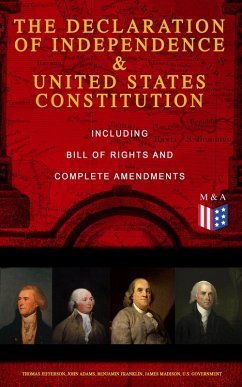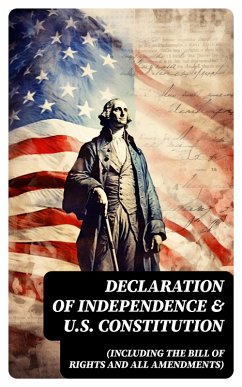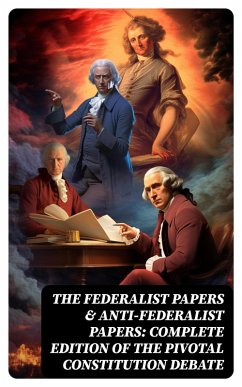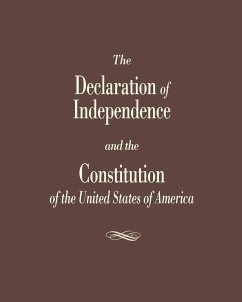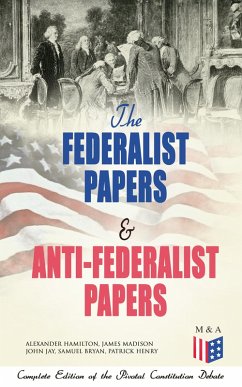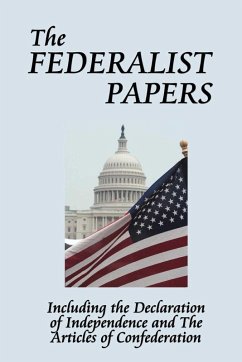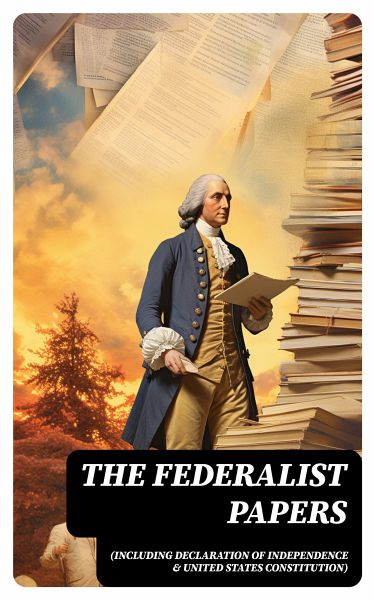
The Federalist Papers (Including Declaration of Independence & United States Constitution) (eBook, ePUB)

PAYBACK Punkte
0 °P sammeln!
The Federalist Papers, an enriching anthology, traverses the foundational ideologies of American governance as articulated through a compelling collection of essays. This compilation, which includes the seminal Declaration of Independence and the United States Constitution, offers a profound insight into the philosophical bedrock of democracy and republicanism. The included essays balance rigorous political theory with pragmatic considerations, ranging from discussions on checks and balances to the nuances of federalism, illustrating the dynamic interchange of ideas that fueled the shaping of ...
The Federalist Papers, an enriching anthology, traverses the foundational ideologies of American governance as articulated through a compelling collection of essays. This compilation, which includes the seminal Declaration of Independence and the United States Constitution, offers a profound insight into the philosophical bedrock of democracy and republicanism. The included essays balance rigorous political theory with pragmatic considerations, ranging from discussions on checks and balances to the nuances of federalism, illustrating the dynamic interchange of ideas that fueled the shaping of a nation. Composed by the illustrious trio of Alexander Hamilton, James Madison, and John Jay, this collection is a testament to the intellectual synergy between these seminal figures during the formative years of American politics. These statesmen and thinkers, pivotal in the ratification of the U.S. Constitution, draw from Enlightenment ideals while addressing the exigencies of their time. Through their essays, they intertwine historical and contemporary concerns, marshaling a reasoning that transcends their own epoch. The Federalist Papers is indispensable for any reader seeking to comprehend the essence of American political thought. Beyond its historical significance, this collection invites readers to engage with ongoing dialogues about governance, liberty, and justice, illuminating diverse perspectives within a single, cohesive narrative. The anthology stands as an educational cornerstone for those longing to explore the intricate tapestry of ideas that continue to shape and challenge democratic societies.
Dieser Download kann aus rechtlichen Gründen nur mit Rechnungsadresse in A, B, BG, CY, CZ, D, DK, EW, E, FIN, F, GR, H, IRL, I, LT, L, LR, M, NL, PL, P, R, S, SLO, SK ausgeliefert werden.




